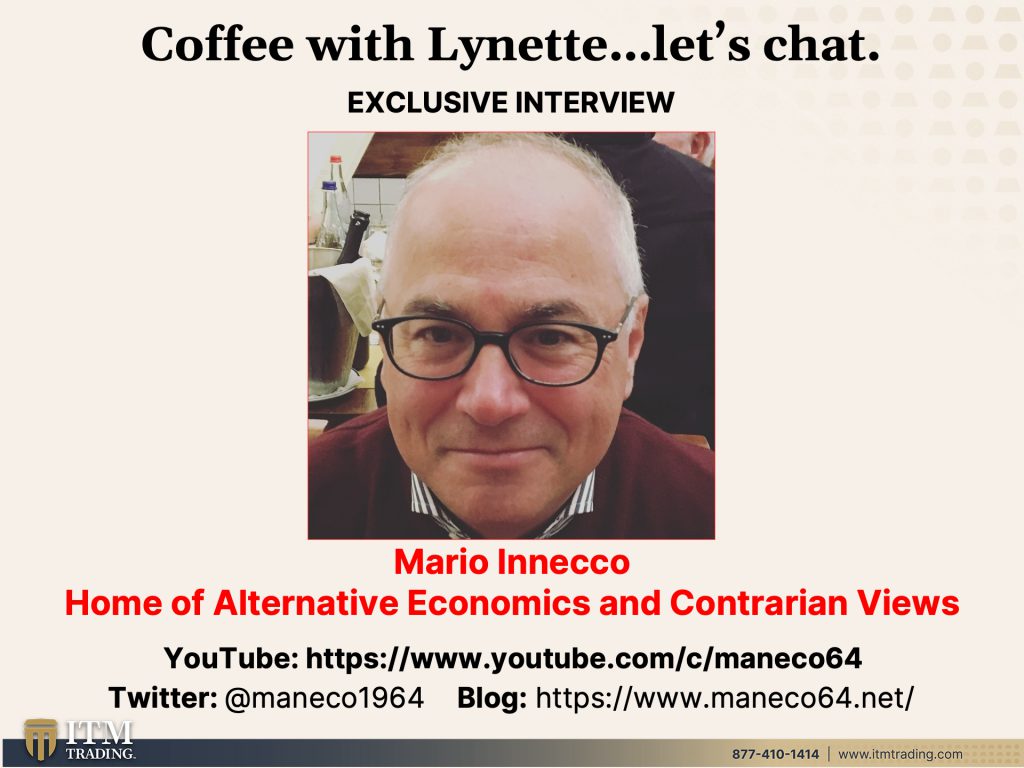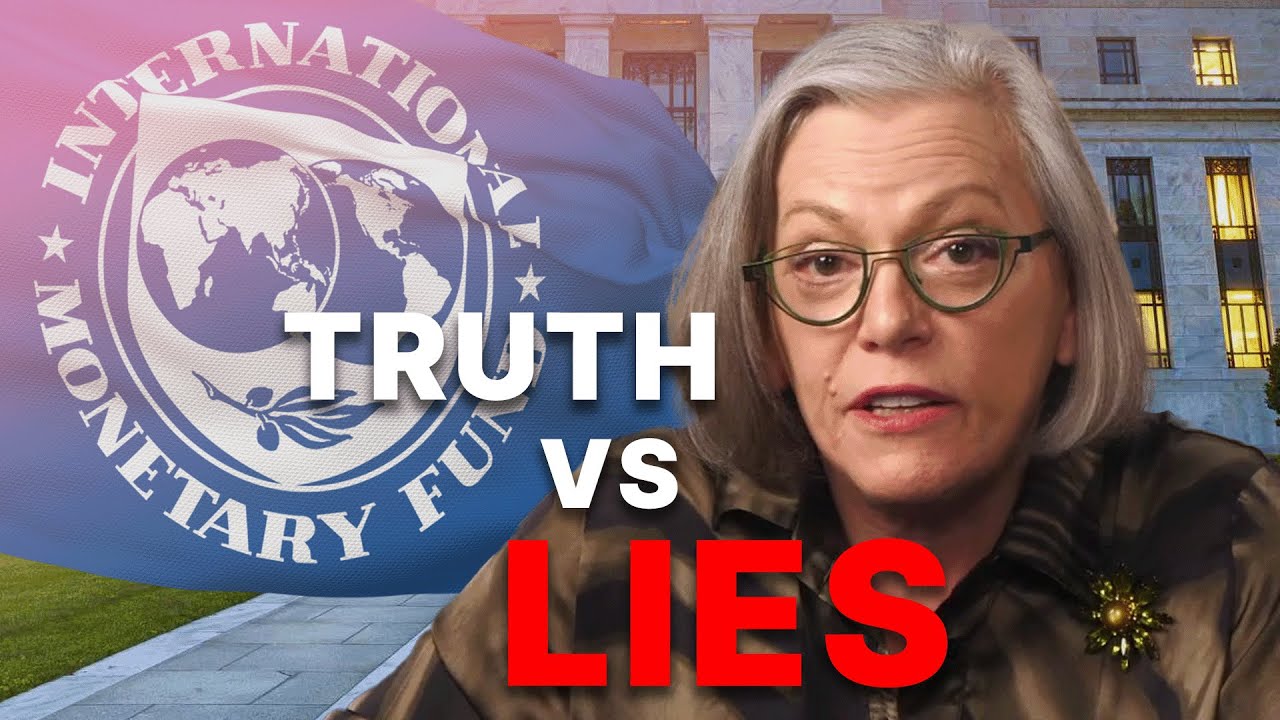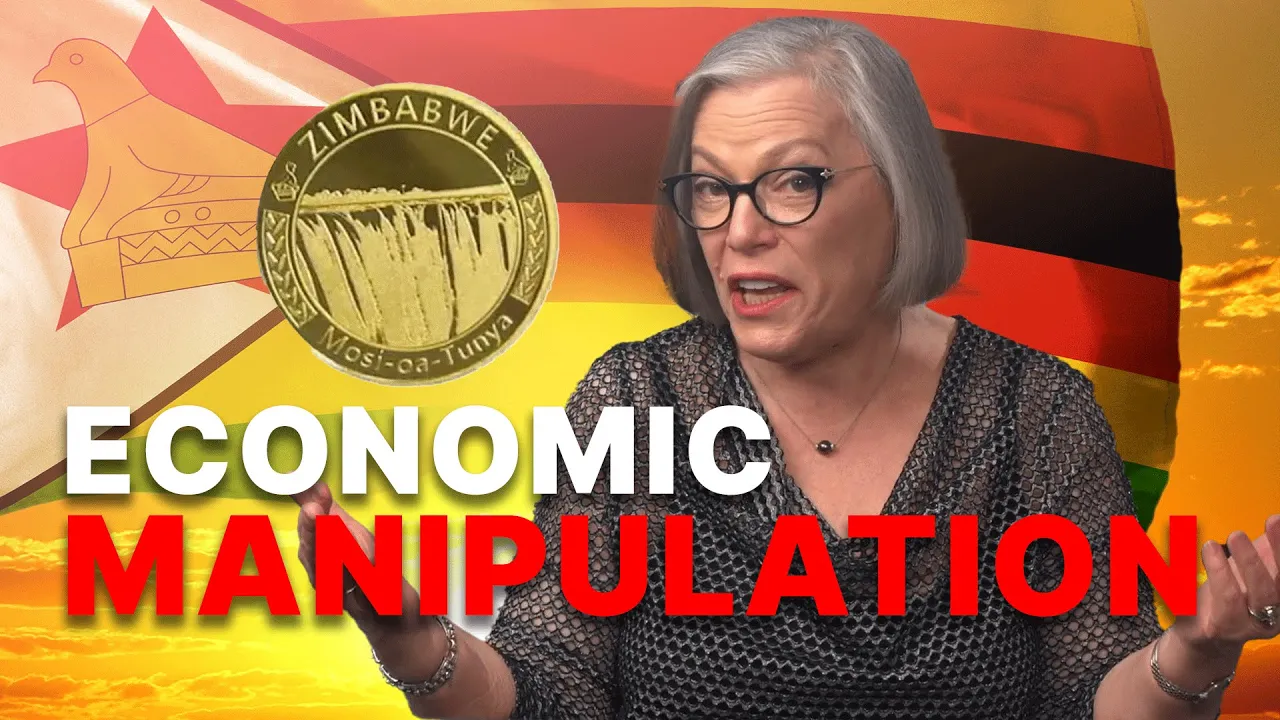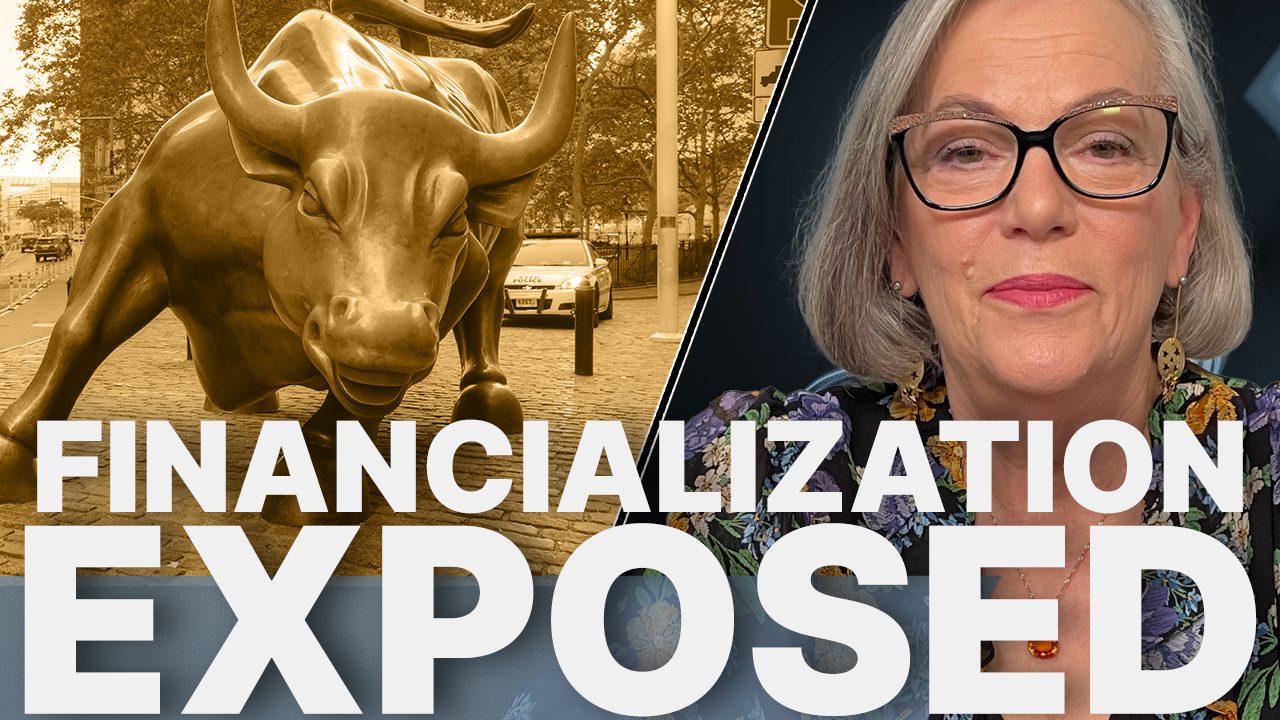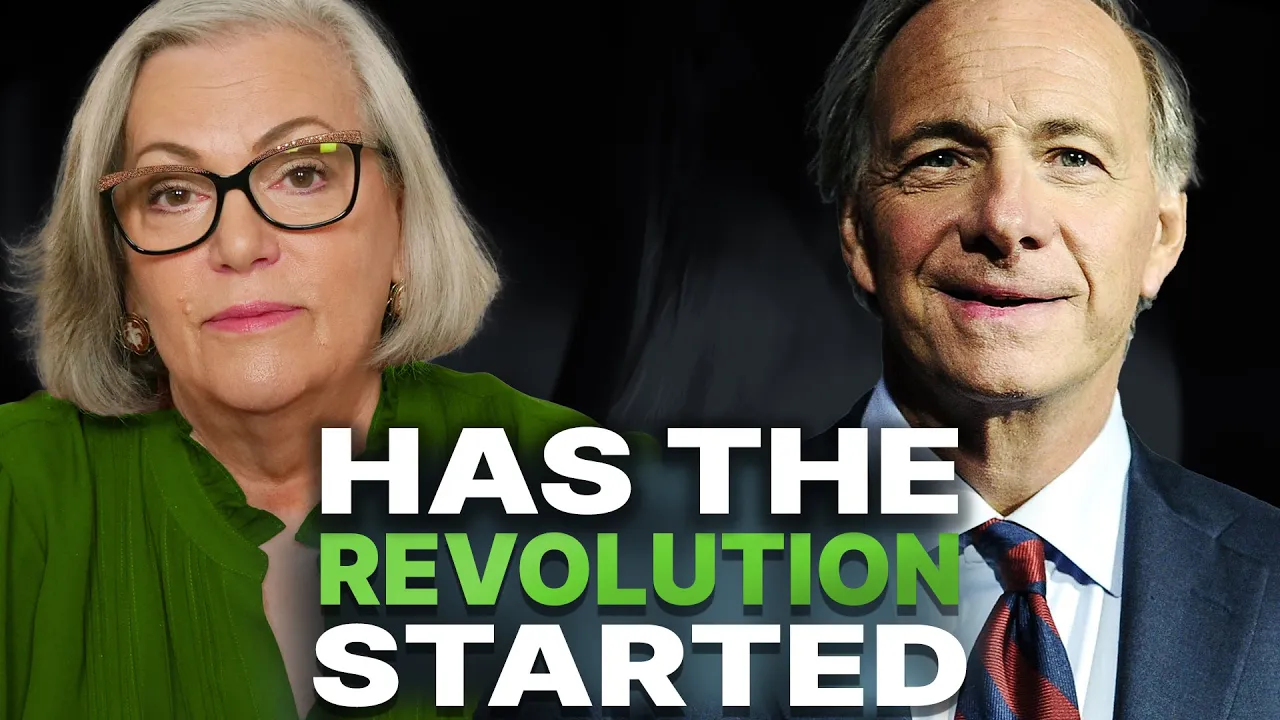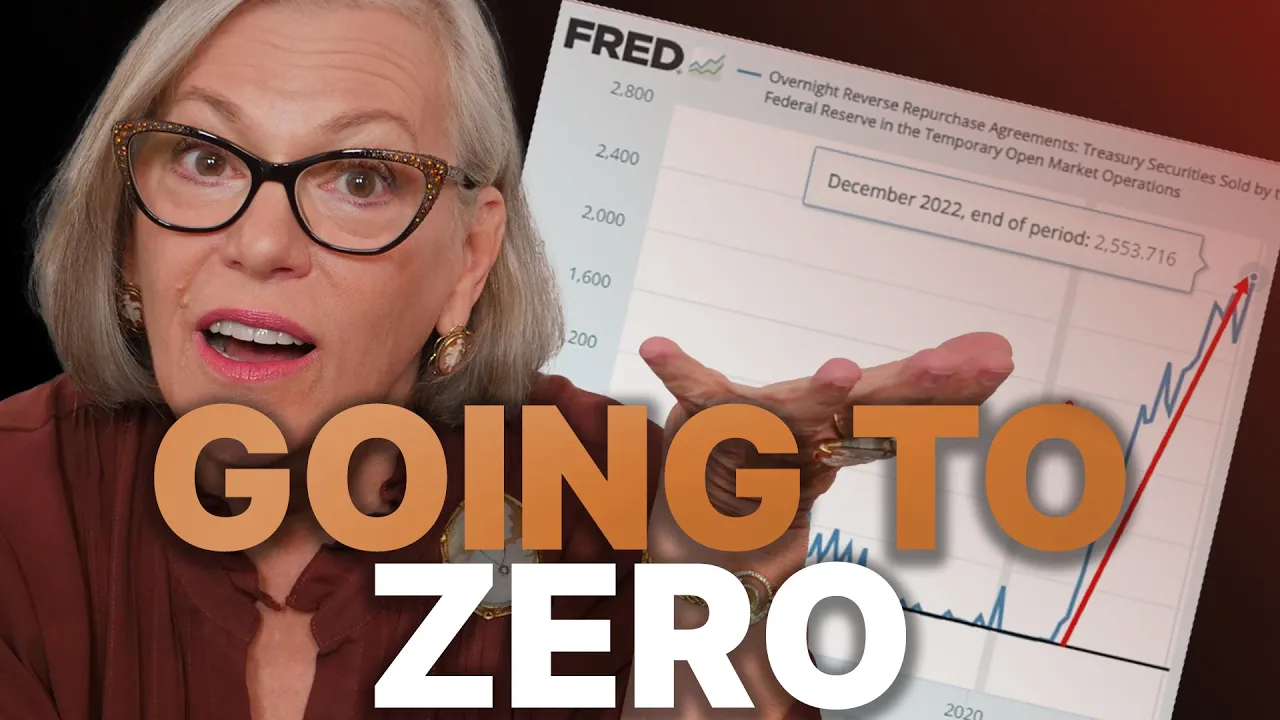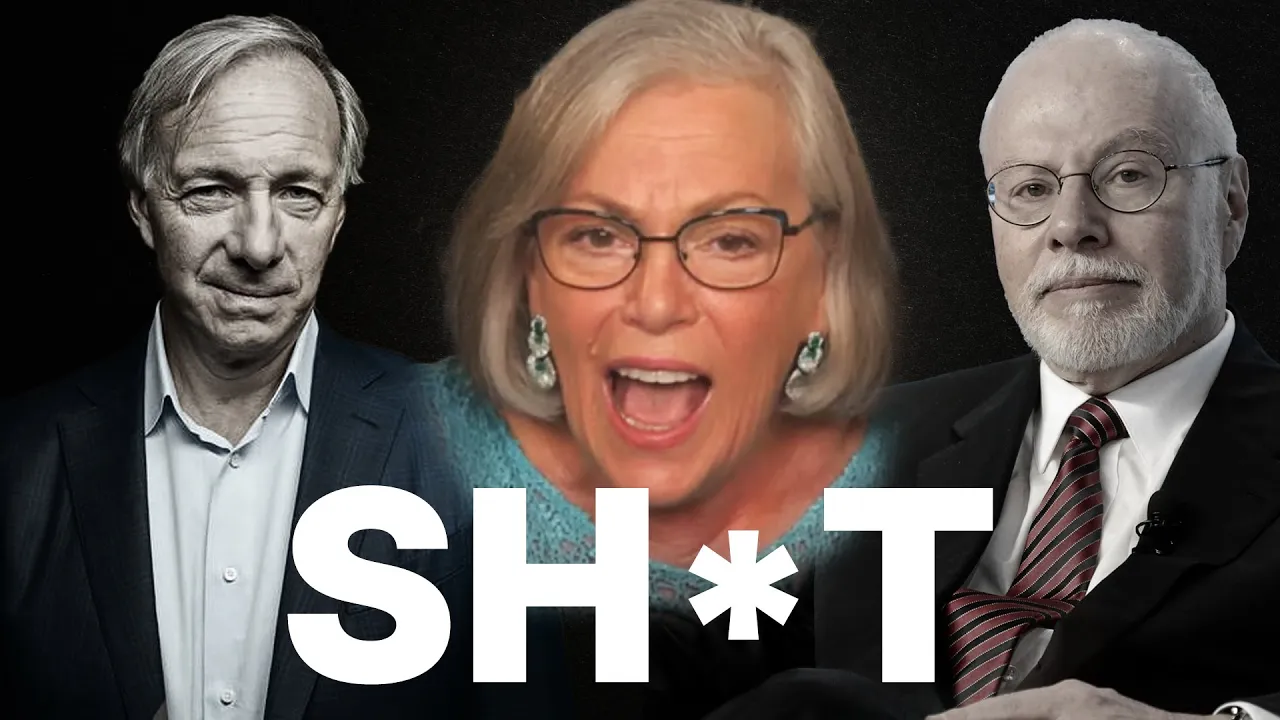Is Your Money Safe in the Bank? The Shocking Reality
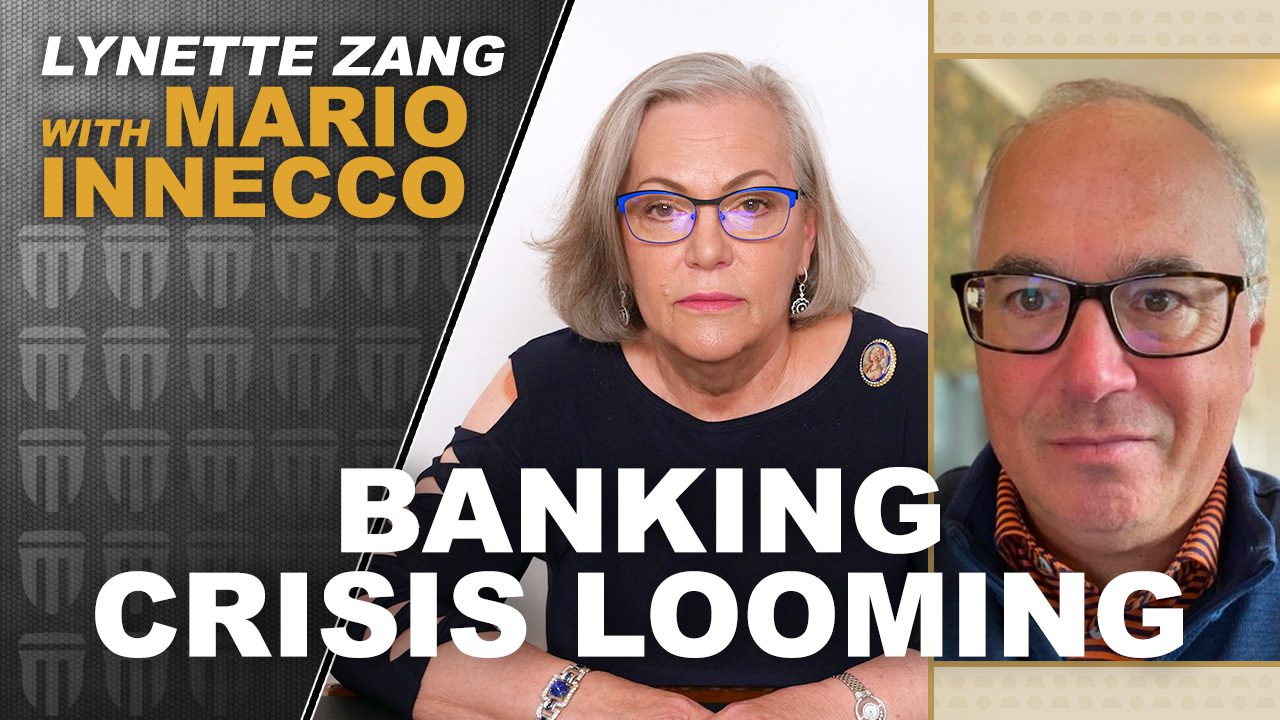
Are you aware of where your money goes when you deposit it in a bank? In this special edition of Coffee with Lynette, Mario Innecco, an expert on the monetary system and financial markets talks about how banks lend your money out and how all roads lead to gold and silver. Joins us in discussing the chain reaction of events that occurred, you won’t want to miss what these experts have to say.
CHAPTERS:
0:00 Mario Innecco
4:13 Bank of England
7:26 Raising Rates?
13:57 Gold & Silver
16:39 SVB UK Bail Out
20:50 Banking Consolidation
25:32 Derivative Explosion
29:03 Consumer Confidence
35:22 Gold & Silver Protection
TRANSCRIPT FROM VIDEO:
Mario Innecco (00:00):
When you put money in the bank, you’re not really, they don’t really keep it there in the, in the vault. So they lend it out and then they lend it out many times over. So yeah. You actually lending, you are an unsecured lender to the bank and the FDIC. Yeah. They, they don’t have enough funds to, to cover anything. All roads lead to gold and silver, I guess.
Lynette Zang (00:27):
Is, you know, what Doesn’t it look like that? I’m Lynette Zang, Chief Market Analyst here at ITM Trading, and welcome to a very special edition of Coffee with Lynette, with my very good friend Mario Innecco, on the other side of the pond, because there’s a lot of things happening in England as well. For the last six years, he’s been informing and educating worldwide audiences on YouTube and other platforms about our monetary system, the financial markets, and precious metals. Ludwig von Mises once said, “you get into the inflationary route, eventually people will realize that you won’t be able to stop inflating, and then they will want to get rid of the currency.” And the reality is, I think we’ve just seen that we are very, very near that at this stage. It may be difficult to tell you exactly the moment, but quite honestly, it can happen overnight, as we saw with SVB Bank. 48 hours, two days gone. Mario, thank you so much for joining us today. So Mario, thank you so much for joining us today. There is so much to talk to you about.
Mario Innecco (01:52):
Yes, you’re welcome. And thanks for having me. Yes, <laugh> we scheduled this probably a couple of months ago, and we picked a really good day.
Lynette Zang (02:02):
We sure did. But I’m thinking that the dominoes are starting to fall, you know, if we go back just to last September, because these things don’t happen in a one off, it’s more like a chain reaction. And last September you had the Bank of England jump into the market to buy gilt. Do you want to you wanna talk about that?
Mario Innecco (02:26):
Yeah. I noticed since the beginning of 2022 that bond yields and interest rates were rising. Mm-Hmm. <Affirmative> quite a bit. And 10 year yield in the UK The gilt yield was below 1% in 2021, and then all of a sudden going up and two, three, you know, four and a month before everything kicked off in this LDI, liquidity driven investments, which were used by defined benefit pension companies. I was warning that something was gonna happen because even though yields were relatively low, three or 4%, the fact that they went from below one so quickly to four, I thought was gonna cause an accident for the UK gilt market and for the, yeah, for the, for, for the pound as well, we saw the pound drop to 103 versus the dollar. And then to top it all off, it was a time when government was changing here. They had like, set up this huge fund to basically bail out every consumer from higher energy prices. They guarantee the cap for utility bills. And then you had this mini budget by quasi car under Liz Trusses 40 <laugh>, 40 odd day government or premiership. And it really snowballed the, the crisis gilt yields went through the roof. I think they went up above 5% in the longer end. And everything unraveled in the bank of England had to step in to do not “QE”, <laugh> <laugh>.
Lynette Zang (04:13):
Yeah. Just like this is not a bailout. So, yeah. Not QE, but can you draw a line from what happened then? Because, because when interest rates go up, I always use my little chopstick when interest rates go up, the market value of the corresponding debt. So bonds go down. So, you know, did all of the actions that the Bank of England did, did that fix the problem? Is the problem fixed or is it just more hidden?
Mario Innecco (04:45):
I don’t think it’s fixed because the Bank of England doesn’t have any, well, we don’t have that much gold in the UK anymore, even though the bank of hold hold for other central banks. No, it was just created out of thin air, this bank central bank money. And they and markets and investors still have faith and confidence in the Bank of England, even though up until recently gilt yields are starting to go back up. But now they’ve come, come off a bit with what’s happened in the US with the intervention, the backstop and not bailout. Even gilt yields dropped yesterday, but I, I noticed today that treasury yields are back up and so our gilt yields. So it’s really volatile. I, I tweeted out about half an hour ago that the volatility in treasury markets remind me of the Italian government bond I used to trade the BTP future before Italy joined the Euro when we had the town lira. And it was it was a wild market to trade because it was so volatile. And, and that just goes to show how the credibility of these markets, these government securities, in my opinion, have gone, gone out the window. Especially now that the central banks are supposed to be selling them from their balance sheets, who’s gonna buy them?
Lynette Zang (06:15):
Well right. And can they even do that? Can they sell them into this market right now? No, because they’ve just like, bring us whatever you have. It doesn’t matter what the current market value is, we’ll loan you the money at par, but can you draw a line from what happened last September to, you know, all of these other dominoes that are starting to fall?
Mario Innecco (06:38):
Yeah, I, I think it’s just like a, I mean, I’ve never fought in a war. I’ve watched all the movies. It’s like a battlefield with mines. The first mine, that first mine that went off was here in the UK second, I guess you could say Japan, there’s been a, a mine Right. Went off there in, in December. And now in the US this huge banking banking trouble is another mine that’s gone off. And it, it seems to be every three months. Right. September end of September, beginning of October, then December, Japan, March the US. So what’s gonna happen in June? I don’t know. Something will come out of <laugh> no left field.
Lynette Zang (07:26):
Right. Well, it seems to be these unintended consequences, but can, do you think knowing what we know now, can these central banks continue to raise rates to quote unquote fight the inflation that they themselves? Actually, I mean, this whole circumstance, I, I haven’t heard really one central banker really step up and say, well, yeah, we forced everybody into these zero interest rate policy negative rates. That means that they’re buying bonds and these securities at the highest possible levels. And now we’re raising rates and, and even the central banks are losing money, which doesn’t really matter. Right? Doesn’t really matter. Cause they can just print more of it. Does it matter?
Mario Innecco (08:14):
No, not for them. I guess they’re they’re not like normal private companies. They, they’ll just sit on the losses. The Fed, I think is sitting on, on over a trillion dollars of losses and they’ve got the very similar balance sheet to Silicon Valley Bank. But yeah. What can they do? I mean, it’s <laugh>, I don’t think they, the Fed can continue to do a quantitative tightening or i.e. Unwind their balance sheet because this new program program they have is basically QE because they’re, they’re, they’re saying, we are gonna buy any securities that you need to sell to us. Even if they’re worth 80 cents to the dollar, we’re gonna pay a hundred. Right. That’s a my, by doing QT (quantitative tightening), it makes no sense to do BTFP.
Lynette Zang (09:08):
Right. But even, even with all of the QT that they were doing, we were still inside of a very loose financial system. So what they did by raising these rates, even though we’re seeing now, and we, I don’t think, do you think that this is the end of it? Or do you think that there’s more to come?
Mario Innecco (09:27):
In terms of the banking crisis?
Lynette Zang (09:30):
Yes.
Mario Innecco (09:31):
Oh, I don’t think it’s the end. I, I think the, I saw someone tweet, I think it was gold telegraph on Twitter, apparently the median deposit in the US Bank deposit, it’s just over $5,000. So SVB was mainly like a bank for the very wealthy venture. Mm-Hmm. <affirmative> a venture capital. They, they had mm-hmm. <Affirmative>, 97% of deposits were over 250,000 mm-hmm. <Affirmative>. So yeah, <laugh>, I think the very, the very wealthy in corporations, they’re gonna say to themselves, we can’t have millions in one bank. They’re gonna try to spread it around, even if they spread it around or put it with JP Morgan or one of the GSIBs, they call them the systemically
Lynette Zang (10:23):
Globally and systemically important banks.
Mario Innecco (10:25):
Yeah. Yeah. Yeah. I mean, they, who’s to say that it would be okay with JP Morgan? And can the FDIC only has, I think 125 billion mm-hmm. <Affirmative> in assets. So I think there is a, yeah
Lynette Zang (10:42):
All deposits, a hundred percent of all deposits are now back stocked. Who are they really trying to save?
Mario Innecco (10:50):
Yeah. And, and I think how, how much is there in deposit 17 trillion or something? How can 125 billion really do anything? And I, I think the mainstream media, even though I don’t watch the mainstream media, the business news, I just spoke to someone saying, and they said, well, they’re trying to really patch it up. You know, they’re saying everything’s fine. And I listened yesterday to US house of representative guy called a guy, let’s see, Jeff Jackson, he’s from North Carolina, and he was on TikTok. And he said, oh, it’s 2:00 AM I’ve just come from this zoom meeting with a US Treasury. All the members of Congress are there. And he said, everything’s fine, don’t worry. The FDIC is covered everything. They, they’ve covered all the deposits there is no problem. And I looked at his details and he’s a democrat from North Carolina, and he had 2.9 million views. So they’re really trying hard to.
Lynette Zang (11:55):
Oh, yeah.
Mario Innecco (11:56):
Look everything’s fine. But I think the people with the billions and or hundreds of million I don’t think maybe this was a wake up call to them they realized that yeah, there is no money in the banks. It’s all, it’s all credit. Like JP Morgan would’ve said, there’s none of this anymore. Right? Right.
Lynette Zang (12:19):
Exactly. There’s none of this, but there is a whole lot of debt and a whole lot of currencies that just do not exist anymore.
Mario Innecco (12:29):
And I noticed that one of the guys who started taking his money out from SVB one of the first people was Peter Thiel of Palantir, the guy who also co-founded PayPal. Last year Palantir announced that they bought 50 million worth of physical gold. So, you know
Lynette Zang (12:55):
That’s his vote.
Mario Innecco (12:56):
Yeah. Peter Thiel. And these people know, they know. So yeah, I don’t think yeah, I don’t think it’s over by any stretch of the, you know, any stretch of the imagination. Maybe there, there might be another mine that will explode in another part of the world. But this has done a lot of damage and it’s not over yet.
Lynette Zang (13:20):
Yeah. I think the biggest, you know, you brought it up. It’s that credibility piece. It’s that confidence piece. And, you know, the markets, I mean, we’ve been watching that confidence piece and that credibility piece erode over time, you know, and everything, people need to understand that everything kind of seems to happen slowly until it happens fast. And so the time to get in position is when? I mean, have we bought ourselves a little bit of a reprieve in here? Maybe
Mario Innecco (13:57):
It looks like it. And I’ve spoken to people and I said, if I was one of these venture capitalists or had billions in the bank, I would be running to not transfer it to JP Morgan, but maybe get some physical gold and silver. But then again. <Laugh>, a lot of these people think a lot of people think gold and silver are risky, even though they’ve had. Isn’t that crazy? They’ve used for value for thousands of years.
Lynette Zang (14:26):
Yeah. And they’re used in every sector of the global economy. So that means it has the broadest base of functionality, the broadest base of demand. But the paper contracts are really risky. Sure. Because they’re not real. And you can’t really even collect on them with this. You hold it, you own it. You’ve got some, I’ve got some smart money, has a lot. Look at what the central banks have been doing, look at what Peter’s been doing. That should be a wake up call when the smartest guys in the room on any given topic are getting into position for themselves. So I think it should be more of a wake up call to the public, to the general public that your wealth is not safe in that system.
Mario Innecco (15:18):
Definitely not. And I think what’s gonna happen though, is a lot of people don’t have 250,000 or more in the bank, so they’re just gonna leave it there or keep, keep it in federal Reserve currency, which is fiat, and it’s gonna keep getting diluted because it’s impossible for the dollar to, to do Well, when the government and the Fed a hundred percent guarantee 17 trillion. I mean, it, it, it’s getting like Zimbabwe and Venezuela, like, I would say,
Lynette Zang (15:51):
Oh, that is a really, really good point. And, and so what, what does that mean to the public? It means, you know, you can hold it in the banking system, but it doesn’t matter how many we get blinded by numbers. Doesn’t matter how many numbers you have, it matters what you can convert it into. Right?
Mario Innecco (16:13):
Yeah, that’s right. The purchasing power of the dollar is gonna keep dropping. And also of our currency here in the UK also the Euro and all other currencies in the Canadian dollar Australian, I think the Australian dollar is making all time highs versus gold. It did recently. So it, it’s gonna happen everywhere, even in China, I would say.
Lynette Zang (16:39):
Well, there are a hundred reportedly 190 companies or banks that have been impact, no companies that have been impacted by what had happened with SVB all over the world. And there are lots of calls of action on your neck of the woods over in Great Britain. So can you explain more about, you know, how and why and what you think about that?
Mario Innecco (17:05):
Yeah, I think 200 of these fintechs venture capital small tech companies or startups, they sent a letter and all their CEOs or chiefs signed it to the chancellor, I think over the weekend. Mm-Hmm. <affirmative>, because for some reason they all banked with SVB, SVB UK and that’s going on there as well. And they, well, they bailed them out, even though they’re calling it, they’re not calling it a bailout. Right. So what they, the government did, and the Bank of England, they met with HSBC and SVB UK, and they engineered a purchase of SVB UK, not SVB, the whole bank, but just the UK arm by HSBC for one pound <laugh>. So, and I, I heard rumors, this is just rumors that HSBC was very exposed to SVB UK, but I, I think it’s outrageous that we have to basically bail out the taxpayers to bail out venture capital firms that probably, I would say 90-95% of them won’t succeed anyway.
Mario Innecco (18:21):
But we have this mentality, not just here, but everywhere in the West, that governments have to help business. And, and here they think that we are like the center of FinTech and we can’t let these firms fail. And, and the other thing I would add is a lot of these firms were involved in payment system. Yes. even blockchain. So they, they, they were, they’re probably gonna be heavily involved in the Bank of England digital currency, because the Bank of England is saying that the CBDC wallet is not gonna be provided by the Bank of England, but by third parties. So can you imagine if they had let all these 200 companies collapse? That would’ve delayed I think their plans for a digital currency probably by a few years.
Lynette Zang (19:12):
That is a phenomenal insight. I mean, and I hope everybody gets that, that by not bailing them out, by allowing these companies to fail when they, and there is it’s private public partnership with these CBDC’s around the world, right? So they let those companies fail, then that really puts a damper on their plans to bring out a CBDC
Mario Innecco (19:40):
Yeah, that’s right. I, I mean, I hadn’t thought about that, but someone tweeted out a couple of days ago the list of all the companies that begged <laugh>, the chancellor of the exchequer for a bailout. And I went through, not all of them, but some of them, and a lot of them were in the payments and FinTech like blockchain. And I thought to myself, well, they’re not gonna let let them fail because they’re gonna be working with the Bank of England. And, and I think in the US it’s the same thing. Mm-Hmm. <affirmative> you know, Silicon Valley, <laugh>, they’re all involved with the cryptos, even though they’ve left let this bank collapse, it’s just gonna, they, I think the big banks are just gonna have more, more control of them. Like HSBC is a big bank, and I’m sure, I’m not sure who’s gonna take over the the business from SVB in the US, but I wouldn’t be surprised if it’s one of the big Wall Street Banks like maybe JP Morgan.
Lynette Zang (20:45):
I think that’s a good point. And isn’t this about the anniversary of Bear Stearns when JP Morgan took over Bear?
Mario Innecco (20:52):
I think, I think, yeah. I think it was sometime in March, 2008, wasn’t it?
Lynette Zang (20:56):
Yeah, exactly. So I, I don’t know, it’s kind of interesting the timing of all of this, but you also bring up a great point. And that is that whenever there is a crisis, there is also a banking consolidation. And so, and that’s what’s happening right now. A lot of people are moving their, those that are paying attention anyway are moving their funds out of the mid-range banks and the small banks into the big banks. But then there are the takeovers, like you just indicated, with HSBC taking over for SVB England or the UK for a pound. And that means that that is, isn’t that danger than more concentrated?
Mario Innecco (21:45):
Well, yeah, I mean, in the UK we don’t, I mean, in the US there’s over 4,000 banks according to the FDIC. So it’s still quite, you know, not so centralized, even though the, the big Wall Street banks and like the other GSIB banks are, are, are huge. But here in the UK will only have four or five big banks. So <laugh>, we’ve already been centralized big time. I, I think the country that needs it more, not that it’s a good thing, but I, in the perspective of the globalists is the US. They’d want to see the US banking system probably just be a few big banks. It’s easier to control each Fed District mm-hmm. <Affirmative>.
Lynette Zang (22:32):
Yeah. It’s, it’s easier to control. It’s, and, and there has been major consolidation, particularly since 2000 where, you know, they keep changing the regulations. And now this whole thing is being blamed on the Trump era deregulations of Dodd-Frank, which enabled, you know, more leverage, less oversight, and fewer investor protections. But quite honestly, when they wrote that, they hadn’t written in all the laws by the time they basically completely dismantle it, except for the bail-in, there were still so many laws that had to be written, let alone not just written, but actually executed that over overall over this last, what, decade and a half or something like that. You know, I, I’ve really, frankly thought that that was just a joke.
Mario Innecco (23:29):
Yeah. I think you, if you’re gonna look at the, what Trump did, you need to look at what Bill Clinton did.
Mario Innecco (23:35):
With repealing glass steagall and allowing commercial banks to be involved in derivatives. I think that was the biggest mistake of course. Hundred percent. And there was just one person that, she was the head of the CFTC at the time, I forgot her name
Lynette Zang (23:52):
Brooksley Brooksley
Mario Innecco (23:55):
Born
Lynette Zang (23:55):
Yes. Brooksley Born. Yep.
Mario Innecco (23:57):
She tried to warn about that in Congress. And then Greenspan and Larry Summers, who we know is still around and is a good friend of, we <laugh> that guy who you know, not, no, to mention names here, but yeah, they like attacked her. You know, they went after and said, no, what are you talking about? Right. And, and also Robert Rubin, he was involved in, in it. Yes. Citibank, he was, yeah, he was the Secretary of the Treasury under Clinton. And then Summers took over and, but Ruben used to be the CEO of Goldman Sachs. And then when he, when they got the glass steagall through, the bank that benefited the most Citibank, and they, they gave him a position and paid him like over a hundred million dollars just for sitting in an office. And then when Citibank collapsed in 08, they made sure that he got paid. I mean I would look more at that than, I’m not too familiar with what de-regulations Trump made, but now Biden came out, oh, we have to regulate the banks more. Right. Carefully better. But this BTFP is like, goes totally against truthfulness of the, you know, of the banking systems basically telling that those FDIC reported losses that the banks have, you don’t have to worry about them anymore. That would make it less transparent for people who put money in the bank. They don’t, they have no idea if the bank is safe.
Lynette Zang (25:32):
Yeah, that’s absolutely true. And since you brought up derivatives, and, and that’s a hundred percent correct. When you let the lifting of the Glass Steagall Act allowed risk taking investment banks to merge and become one with deposit taking banks, and, and then in 95 what they do, they allowed, they created the sweep accounts. So you make a deposit, those deposits are swept into a sub-account that’s in the bank’s name, and then they can use that. Number one, they have to hold back fewer reserves. And that’s also what happened in with the Trump, with the Trump change. So fewer and we’ve seen, and not just with that, I mean, we’ve seen those changes over time so that the banks have more that they can gamble with, but the problems, 98 long-term capital management was a derivative explosion. And then in 2007, 2008, that was also a derivative explosion. Are we sitting on top of another derivative explosion do you think?
Mario Innecco (26:40):
Well, LDI and the gilt meltdown was a derivative explosion
Lynette Zang (26:46):
A bigger one?
Mario Innecco (26:47):
Yeah, of course. I think derivatives are still a problem. They’re, the BIS only values them at 600 trillion, but it’s probably over a quadrillion cause they change the accounting method they, they always like to change these rules to make it, just like you said they have to keep very few reserves. I think it was in 2020 that the Fed is allowed banks to have zero reserves.
Lynette Zang (27:18):
That’s right.
Mario Innecco (27:19):
And I mean, no one probably is talking about that on the business channels. And I don’t watch them that much. I only see a few clips on Twitter, but no, I, I think the Chinese <laugh> they have a reserve requirement ratio of just about 7.8%. I mean US is zero <laugh>. I think in the UK it’s 2%. But I looked into that back in the seventies. In the UK it used to be 12%.
Lynette Zang (27:51):
Interesting. I mean, so people don’t realize how vulnerable they are at any amount that they put in there, and how many times you hear, oh, don’t worry about it because it’s insured. Right. Well, all of it is based upon the claims paying ability of the counterparty. Period.
Mario Innecco (28:14):
Yeah. And I think now with this promise to guarantee all all accounts, I think that’s might calm people down for them to leave their money in the bank. But I think the smart money, they don’t buy it. No. Yeah. And the people who don’t have, you know, 250,000, they’ll just keep it there because it’s insured and, but they’re gonna lose, as I said, the purchasing power,
Lynette Zang (28:42):
Even if they don’t lose the actual dollars. I mean, you know, it just, the purchasing power, and you can see it on the FRED for those that are watching purchasing power of the consumer dollar, it just keeps going down, down, down. And that’s official.
Mario Innecco (29:00):
Yeah. And yeah, sorry.
Lynette Zang (29:02):
No, go ahead.
Mario Innecco (29:03):
No, and I remember a few years ago, Alan Greenspan was on TV with I think Austin Goldsby. I, I think he’s, he’s been like talked about becoming like a fed president or governor, but <laugh> Greenspan said on TV, oh, the, the US government, or the Fed, we can just print whatever we want, we can <laugh> and the, this guy Austin Goldsby, he looked at him like this, you know, no, what are you talking, you know, don’t say that in front of everyone, but that’s the truth. Yeah. The, the US Treasury won’t go bankrupt, but the, the piece of paper won’t be worth much the promise.
Lynette Zang (29:49):
It’s a fact. And we, and we, and here in the US we just got another CPI reading, which for, for whatever that’s worth, because I don’t trust any of these numbers, but it’s proving to be stickier than they anticipated. Oh my goodness. So now I think that’s happening globally too. Where, how are these central banks now going to fight the inflation that they caused and deal with the instability in the global banking system? Because what everybody should have seen is that this impacts everybody around the world, not just, it’s not just SVB Bank.
Mario Innecco (30:33):
Yeah. And in the last few months, or maybe even six months, I, I’ve seen economists from Wall Street and like, you know, the types saying we need to lift the CPI, they call it inflation target from two to to three or four, because if we raise rates too much, it’s gonna cause an accident. And I don’t know if you heard of Chris, Chris Whelan, I think he worked for the New York Fed, but he’s like a, a respected bank analyst. And over the weekend he was being interviewed by blockchain macro blockworks macro, quite a good YouTube channel. And he said well, we gotta forget about inflation now, because if we keep trying to contain inflation, everything’s gonna collapse. So that’s not me saying it. That’s a guy who worked for the New York Fed, New York Fed and is he’s not a believer of course in sound money, but
Lynette Zang (31:33):
So, so what’s the implication of that, in your opinion?
Mario Innecco (31:38):
Well, the implication is that you gotta hold onto your gold and Silvers much as you can. You know, as hard as you can because it’s hard to, it’s not easy because sometimes you have emergencies and try to keep stacking be and because it, there could be also a trigger of faith and confidence. It could be overnight, right?
Lynette Zang (32:03):
Yes.
Mario Innecco (32:04):
The people with a lot of money, they could just go to JP Morgan, say, I want my, I want gold. I wanna take my, you know, money out cause I don’t trust things anymore. It, it could happen because right now it, it’s calmed down. But I’m not too sure they’re gonna succeed. Especially when you see politicians now coming out, oh, don’t worry. The banking system is sound and there’s loads of liquidity. When you listen, hear people say that, then you have to be worried about it.
Lynette Zang (32:35):
Yeah, exactly. Whatever they title anything, it’s really just the opposite. Consumer protection. Oh no, it’s a whole lot. And, and over this last, what, 14, 15 years, the consumer protections in everything in contracts and these debt contracts as well as the reserve, they’ve gone down substantially. So would you say that this could potentially be, if not, is the lead up to the hyperinflation and that that’s coming a lot sooner than maybe a lot of people anticipate?
Mario Innecco (33:09):
Definitely. this is huge. I think even though a lot of people will say, well, you’ve been saying that for a few years, but I think it was Hemingway who said, you know, how, how did, did you go broke? And he said gradually. And then and then it happened. <Laugh> all of a sudden. So
Lynette Zang (33:30):
Exactly. I mean, God SVB Bank, didn’t they or weren’t they up for, and did they win like March 1st? Like the best bank or something? It was some kind of fancy title like that
Mario Innecco (33:43):
<Laugh>. I saw that. Yeah. It’s, it’s crazy. And they were paying, well, I, I think the, the bonuses they paid <laugh> the day before. I mean the morning or afternoon before they went bust that was nefarious because I think they knew they were gonna go bus and they gave themself bonuses. But yeah, I saw something that they, they were being considered for a prize a couple of weeks or a week before they they collapsed. So. Exactly. It’s just a very fickle system based on as John Exter said, I owe you nothings
Lynette Zang (34:22):
Really. Yeah, yeah.
Mario Innecco (34:24):
The guy who talked about the inverted pyramid and he worked for the New York banks, he worked for the, the Fed, he helped found the Sri Lankan Central Bank. I mean <laugh>, he, he’s after 1971, he said, well, the dollar is now I owe you nothings.
Lynette Zang (34:44):
Yep, very good point. And he’s got that inverted pyramid and what’s on the bottom the most sound money is, yep. Yeah, that’s it. That’s it. So, well
Mario Innecco (34:59):
The fed’s balance sheet when you go back to its beginning was mostly gold and three month discount bills for real goods, I think they had very they didn’t have much government bonds. They were not supposed to have government bonds on their balance sheet. And we see now that treasuries are not safe.
Lynette Zang (35:21):
Right.
Mario Innecco (35:22):
The only thing that’s safe is really gold and silver on, on your balance sheet and maybe the discount bills because of their bills for real, real goods.
Lynette Zang (35:33):
Yeah. Well, let’s talk about the treasury bond safety for a second. And because that underpins the entire global financial system, but we’ve been watching the liquidity in that area, drop and drop and drop till we had that one mismatch in 2015 was was the, the first one that really reared its ugly head. And, and according to the TYVIX, which is no longer published, but, so that’s the treasury volatility index. When you look at it, you can see where the traders took over that arena. So can you talk a little bit to the liquidity and the implications for that underpinning the global system?
Mario Innecco (36:25):
Yeah, you spoke about 2015 and, and then in 2020 as well mm-hmm. <Affirmative>, there was a lot of vulnerability and problems in the treasury market. And I saw one of the Fed presidents recently said that the treasury market is shaky and, and again mentioned a liquidity problem. And it’s been mentioned for the last few years. And basically I started out when I started out I did treasury cash trading and the bid and offers were very tight and there’s a lot of liquid, like let’s say you could buy a two year for par and two 30 seconds was the bid and two and one eighth of a 32nd was the offer. And there’s 50 million on each side. So very liquid. But you nowadays the bidding offer spread is widening and there’s less liquidity. And the, the, and I think the major reason why this is happening is because the yeah, the debt’s grown so much <laugh> and the central banks are a big part of the owners. So there’s no real organic demand for treasuries anymore because who’d wanna own something that there’s so much of it out there. And, and I think that that’s a big problem as well, the liquidity. And when you see like what’s happened in the last two days, the volatility where yields yesterday dropped like 40 to 20 basis points and today they’ve gone up again. Yeah. The, the market makers in, in the banks and brokers, they, they’re gonna make a, a much wider bit of offer. It’s like in gold, you know, the, the bullion deals, if the market is volatile, they’re gonna take a bigger premium because they’re, they’re gonna try to hedge their exposure. And it’s the same thing for treasuries. And it’s supposed to be what underpins, like you said, the whole world’s financial system.
Lynette Zang (38:30):
So how safe does that make you feel? <Laugh>
Mario Innecco (38:33):
Not, not too safe.
Lynette Zang (38:35):
That’s why you own this <laugh>.
Mario Innecco (38:37):
Yeah, that’s right.
Lynette Zang (38:38):
This because it’s not safe.
Mario Innecco (38:41):
All, all roads lead to gold and silver I guess
Lynette Zang (38:45):
Is, you know, what doesn’t it look like that? Because this is not the time to speculate. Right. And the Fed does not have yours or my back. And okay, this statement, and then we’re kind of running outta time, but the statement that we’re gonna backstop everybody, we’re gonna pay all these uninsured deposits, but that’s not taxpayer money because it’s supposedly coming out of the DIF fund, which as you said earlier, it’s actually like 128 billion dollars to underpin that. What, 17-18 trillion in there. I mean, how is it that it’s not that the taxpayer is not the one that’s gonna end up paying for this puppy?
Mario Innecco (39:35):
Yeah. Aside from the, the FDIC 125 billion, the Fed is just gonna load up its balance sheet, take all those losses and that Yeah. And that makes the currency worth less. So it’s a hidden tax of inflation.
Lynette Zang (39:50):
It’s a hidden tax of inflation and ultimately taxpayers and they do say this, are responsible for the fed’s balance sheet as we are for the government balance sheet. So personally I think it’s garbage when they say that the taxpayer isn’t gonna pay for this. So don’t call it a bailout, just like, don’t call it QE because it’s a little, it’s a little different. Yeah. It’s not really any different.
Mario Innecco (40:18):
Backs according to them <laugh>.
Lynette Zang (40:21):
Yeah. It’s a well, who’s got their backstop. Exactly. So is there anything else that you want to bring up that you feel people need to be aware of?
Mario Innecco (40:35):
Yeah. That when you put money in the bank, you’re not really, they don’t really keep it there in the, in the vault. So they lend it out and then they lend it out many times over. So yeah, you are actually lending, you are an unsecured lender to the bank and the FDIC. Yeah. They, they don’t have enough funds to, to cover anything that, that’s all I can say. And yeah, have a little bit of gold and silver on the side, even if you don’t believe in it. But just as a precaution, it’s like insurance insurance. You, you’re not gonna buy insurance for you know, fire insurance for your house. After the house burns down, you buy it before
Lynette Zang (41:23):
Really good.
Mario Innecco (41:24):
And I think we’re close, we’re close to burning down the system’s. Close to burning down, I think.
Lynette Zang (41:29):
Yeah. And, and maybe we’ve postponed for a minute time is gonna tell us that, or maybe we haven’t. Maybe the next shoe is getting ready to fall and we just can’t see it yet. So would you call what just happened at Black Swan event?
Mario Innecco (41:47):
Yeah
Lynette Zang (41:49):
Black Swans or flying?
Mario Innecco (41:51):
Have you ever heard of SVB Bank before?
Lynette Zang (41:55):
Nope. But it sure has huge tentacles. Huge tentacles on a global basis. Well Mario, thank you so much. This has been a really important conversation and I really appreciate your perspective and all of the links, but how can they find you?
Mario Innecco (42:15):
While I’m on YouTube at Maneco64, I’m also on, on Twitter quite regularly @Maneco1964. There are a few <laugh> people impersonating that handle. But yeah, mostly YouTube. I make a, a video every day really about what’s going on and about the markets.
Lynette Zang (42:38):
Well, you’re definitely someone to listen to. You know, I retweet your work a lot every time I see it. And it’s good cause it’s always good. I retweet it. So thank you so much for being here today and I certainly hope that our viewers got as much out of this conversation. I mean, this is a really important conversation. Take heed. And until next we meet. Remember, financial shields are made of physical gold and physical silver, not paper and promises. Perfect. Here. We’ll do it together. We’ll do it together. Yeah. <Laugh>. Okay, <laugh>. It’s perfect, perfect.
Mario Innecco (43:18):
Great!
Lynette Zang (43:18):
And until next we meet. Please be safe out there. Bye-Bye.
SOURCES:
YouTube: https://www.youtube.com/c/maneco64
Twitter: @maneco1964
